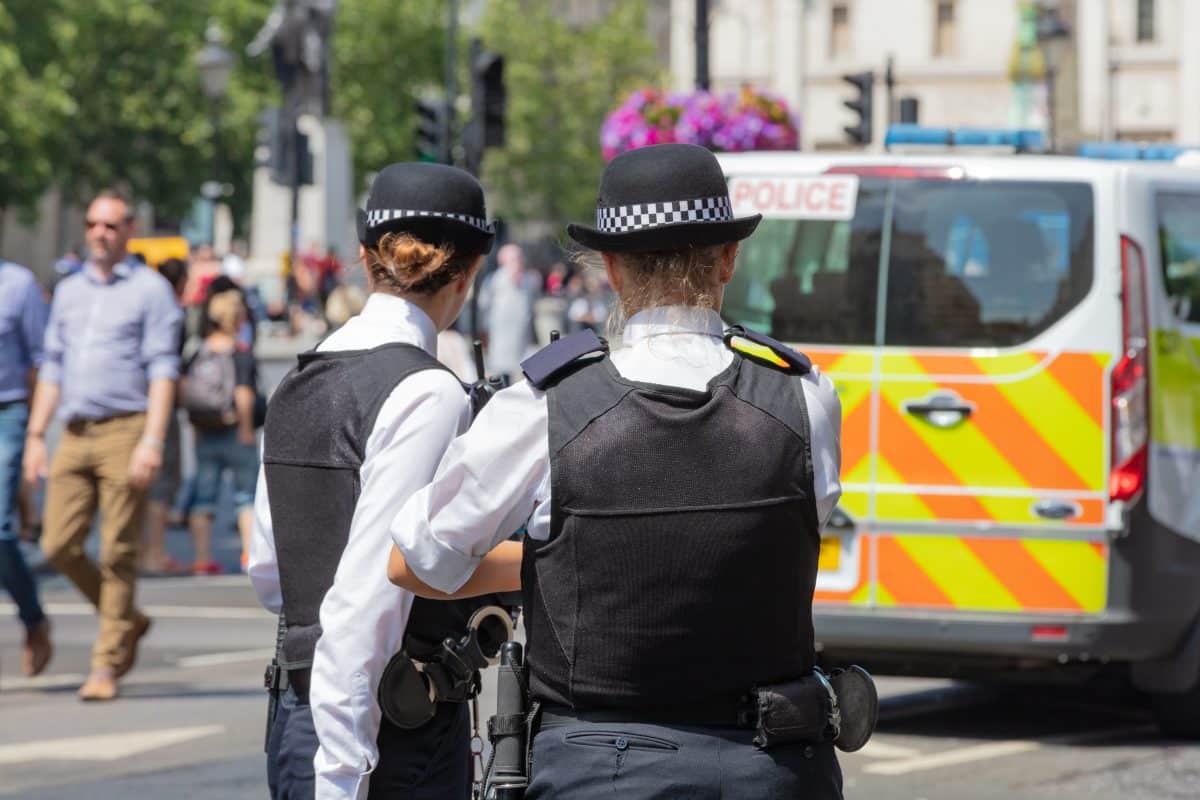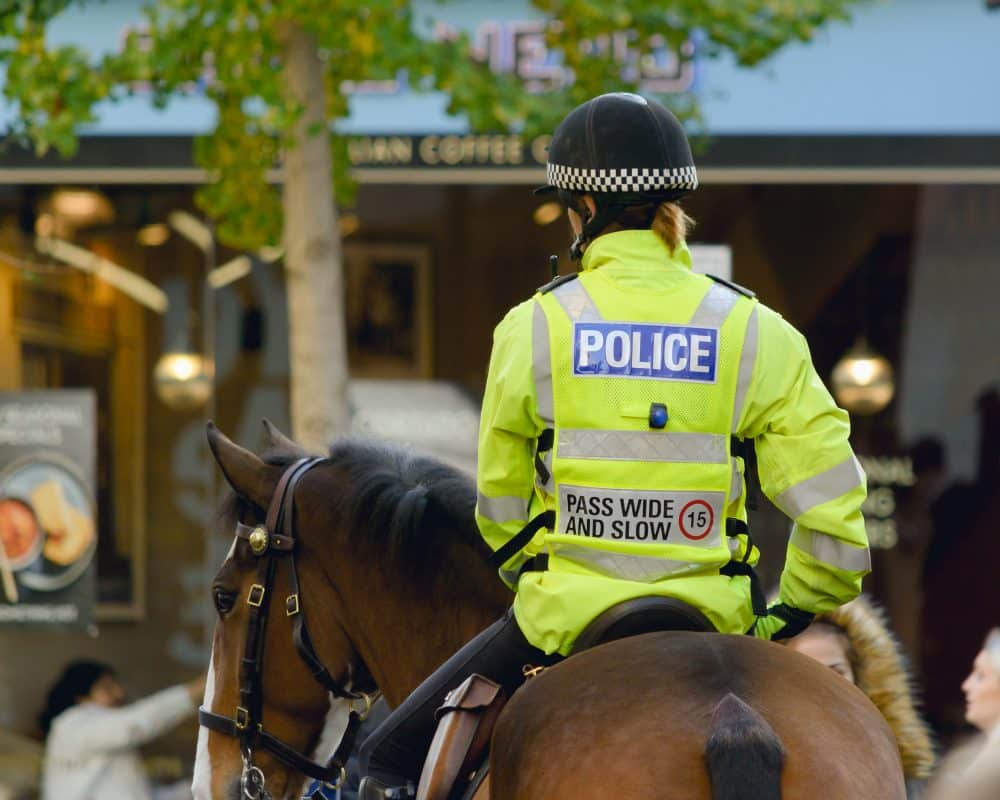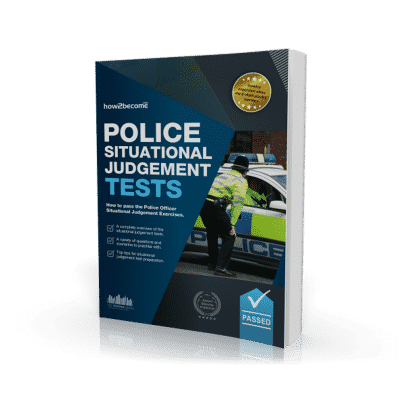One of the most essential elements for working as a successful police officer, is good decision-making. Every single day, police officers in the UK will be placed in positions where they need to make logical, lawful and politically correct decisions. While these decisions won’t always be life-or-death, it’s imperative that officers are able to behave in a way which:
- Maintains a good image of the police service.
- Does not endanger the health and safety of the individuals concerned, nor of the officer.
- Complies with the police code of conduct, values and core competencies.
To this end, the Metropolitan Police and certain other constabularies are now using a Situational Judgement Test as part of their selection process. In this blog, we’ll outline what the Police Situational Judgement Test is, how it works, and give you some example questions!
What Is The Police Situational Judgement Test?
The Police Situational Judgement Test will provide candidates with a series of passages. The passages will describe a policing-based scenario, and each will be followed by a series of answer options, relating to how the officer should respond to the scenario. For example, you might be given a passage about seeing two men get into a fight, and will then be given answer options such as, ‘Interrupt the fight and arrest the men’ ‘Ignore the situation altogether’ or ‘Ask someone else to deal with it.’ Your task is then to rank the answer options in order of how useful they are.
Below we’ve listed the categories under which you should list each answer, and what they mean:
EFFICIENT. The best/most productive response, which is most likely to lead to the best possible outcome. It’s worth noting that the test will sometimes make it difficult for you – sometimes you won’t get any answers which are entirely efficient, but you still need to select the most efficient option of the answers provided to you.
FAIRLY EFFICIENT. A reasonable but slightly flawed response – one which could be improved upon, by making small changes to particular actions or behaviours.
INEFFICIENT. A response which does not help the situation, often a result of inaction or failing to change the circumstances in a positive way, without making things inherently worse.
COUNTERPRODUCTIVE. The worst response – one which not only fails to improve the situation, but makes it worse, and leads to more problems.
When answering situational judgement there is technically no right or wrong answer – the assessors want to see how you would react in that situation. However, there are certain responses which will make you less favourable with the assessors. For example, if you select ‘punch your colleague’ as efficient, then this could raise some red flags for the assessors!

Police Situational Judgement Practice Question
You are on evening patrol with another officer. As you pass the local pub, a man staggers outside. He is bleeding from the nose. Another man follows him out and knocks him to the floor with a punch. The two begin to scuffle on the ground.
Fellow officer: ‘Oh dear. Let’s call for backup, there’s no point in endangering ourselves by getting involved.’
Now take a look at the below responses to this passage, and rank them in order of efficiency.
1. Inform your fellow officer that it’s your duty to protect the public, and immediately intervene.
Efficient / Fairly Efficient / Inefficient / Counterproductive
2. Allow your fellow officer to call for backup, while trying to intervene yourself.
Efficient / Fairly Efficient / Inefficient / Counterproductive
3. Agree with your fellow officer. There’s no point putting yourself in danger.
Efficient / Fairly Efficient / Inefficient / Counterproductive
4. Encourage your fellow officer to intervene, while you call for backup.
Efficient / Fairly Efficient / Inefficient / Counterproductive
Answers
1. Inform your fellow officer that it’s your duty to protect the public, and immediately intervene.
Answer: Efficient
Explanation: As a police officer, you have a duty of care for the public. You need to step in and stop this fight from escalating even further.
2. Allow your fellow officer to call for backup, while trying to intervene yourself.
Answer: Fairly Efficient
Explanation: This is fairly efficient, as at least you are intervening in the fight. However, something of this nature should really not require more than two of you (unless things seriously escalate) and therefore it’s better if your partner assists you in intervening.
3. Agree with your fellow officer. There’s no point putting yourself in danger.
Answer: Counterproductive
Explanation: As a police officer, you have a duty of care to the public. By refusing to intervene, you are neglecting this duty.
4. Encourage your fellow officer to intervene, while you call for backup.
Answer: Inefficient
Explanation: Although this is technically the same as option 2, encouraging your partner to intervene whilst you make the call to the station is not particularly bold on your part; particularly as your partner believes that you should ignore the fight altogether.
Situational Judgement Practice Question 2
Police have been called to the scene of an accident at Ficshire Zoo today. A young man aged fifteen climbed over the wired enclosure to the Gorilla Den, where he attempted to take a selfie with the Silverback. The gorilla – named Ernie – did not take kindly to this.
When you arrive at the scene, with your fellow officers, you encounter a scene of absolute bedlam, with park keepers desperately trying to administer medical attention to the young man, and Ernie standing in the background furiously beating his chest.
Your senior officer has asked you to go and police the zoo canteen, whilst he and your colleagues deal with the fallout from the accident. You do not feel that this would be an efficient use of your time.
Rank the following responses in order of efficiency
A. Inform your senior officer that if he wants someone to go and police the canteen, he should do it himself.
Efficient / Fairly Efficient / Inefficient / Counterproductive
B. Ask your senior officer to clarify what exactly needs to be done at the zoo canteen.
Efficient / Fairly Efficient / Inefficient / Counterproductive
C. Ignore your officer’s instructions and do what you think is best.
Efficient / Fairly Efficient / Inefficient / Counterproductive
D. Immediately agree to go and police the canteen.
Efficient / Fairly Efficient / Inefficient / Counterproductive
Write your answers to this question in the comment section, and we’ll mark your score!
Practice More Police Situational Judgement Test Exercises
If you’re looking to perfect your police situational judgement test skills, then we have the perfect resource for you! Our guide on how to pass the police situational judgement test is jam-packed with incredible tips on how to:
- Ace any situational judgement test, police and non-police.
- Rank answers, in terms of efficiency.
- Select the best answer, for different kinds of situational judgement test.
- Put yourself across in the strongest possible way, and impress the assessors!
So, don’t hang around. Check out our incredible guide on how to pass the Police Situational Judgement Test!


D B C A
Hi Kerry,
This is a really good answer, and it seems like you’ve really grasped the fundamentals of the exercise. Just make sure, when answering these questions, that you’re confident in explaining why you’ve picked certain options.
Sincerely,
The How2Become Team
B, D, C, A.
Hi Edwina, great answers. You should be prepared to justify why you have ranked the responses in this order.
D – Efficient. The senior needs to delegate tasks quickly. Needs everyone to work as a team and take responsibilty for the task they are given. By me immediately going to the zoo canteen and taking charge there, means it is one less thing for the senior officer to worry about.
B – Fairly efficient. Although it is good to seek clarity if unsure of the task given, this is an ongoing dangerous incident and the senior officer may not have time to explain everything to every officer. Officers need to take responsibilty in line with their skills and knowledge to protect the public.
C – Inefficient. If officers go off and do their own thing, then any plan that was put in place gets disrupted. Officers need to work as a team.
D – Counterproductive. Not only has the senior officer got to manage the dangerous situation of the gorilla and the injured young man, they now have to deal with me. This can put everyones safety in jeopardy.
Sorry last bit should read…
A – Counterproductive. Not only has the senior officer got to manage the dangerous situation of the gorilla and the injured young man, they now have to deal with me. This can put everyones safety in jeopardy.
Great answers Jacob, and your reasoning is excellent too 🙂
Fully agree with you, Jacob. My wife and I have differing answers (B then D or D then B), but both were able to justify our choices!
C, A, D, A
D, B,A,C
Great answers Lucy 🙂
B, D, C, A. I think option B, Efficient because everyone is trying to help but if a senior officer is in charge already just try to get sufficient information to develop your work properly. D, Fairly Efficient, if there is a senior officer in charge I presume that he already has a plan so I will follow orders making things easy. C, Insufficient. I will go with the same answer as Jacob, very clever. Option A, Contraproductive, that should not be the situation that you put yourself as a priority just trying to do your will and defeat a superior making things worst.
Great answers and explanations Cristian 🙂
D b a c
This is a great answer Gagan, if you want to practice more SJT questions don’t forget to check out our guide, it’s packed full of SJT questions, complete with our suggested answers and explanations: https://www.how2become.com/police-situational-judgement-tests/
Dcba
I thought on the situational judgement test you didn’t rank them in order as you could have 2 ‘counterproductive ‘ actions for example?
Hi Mike, the answering structure for any SJT can vary but you will be told the format before commencing. It is usual when sitting an SJT for a police officer role that each scenario will be ranked independently.
D, B, A, C. Agree with all the reasons stated above, however I think C is the most counterproductive as at least the senior officer would know that there would be nobody based at the canteen with option A, whereas with option C just ignoring it may create even more of an issue if the officer in charge thinks that an officer is stationed there when in fact the instructions were ignored.